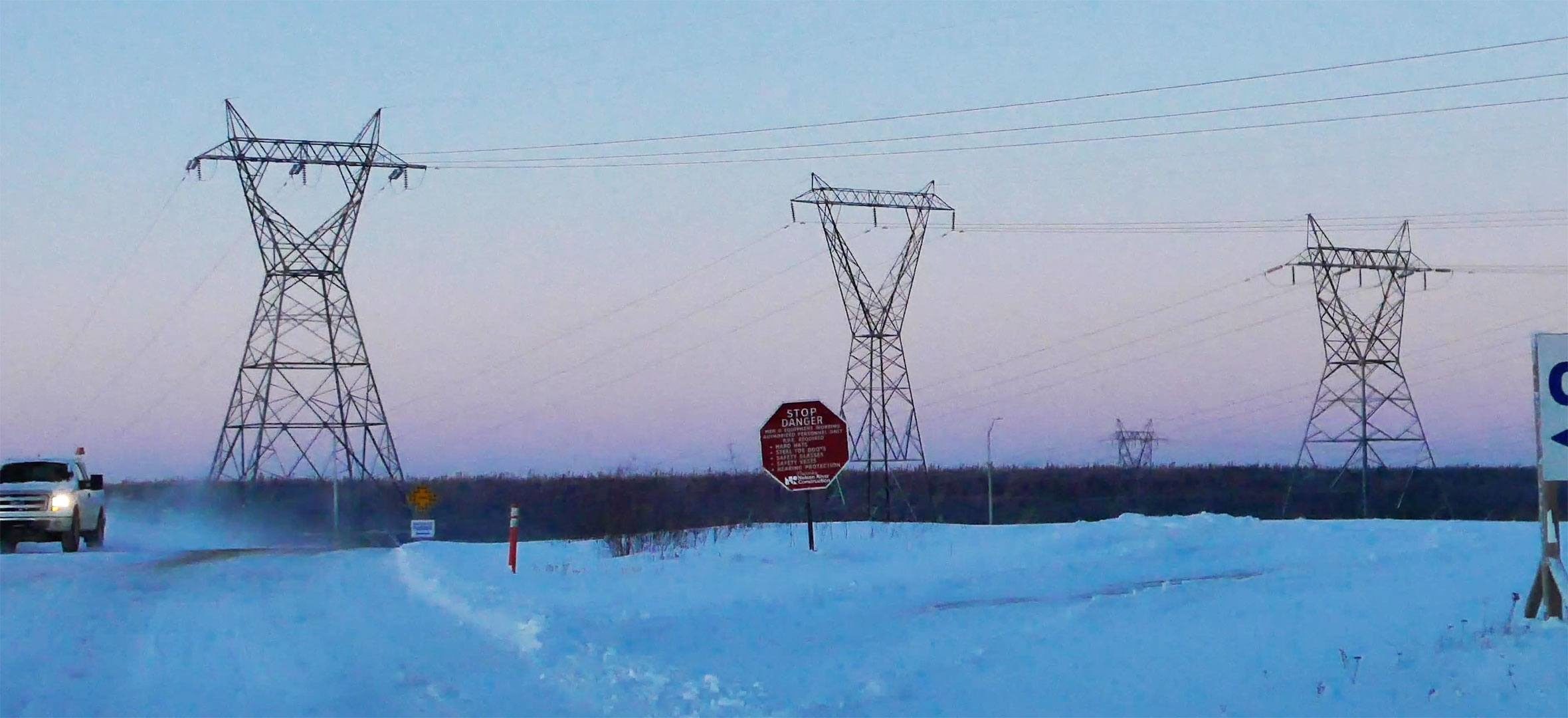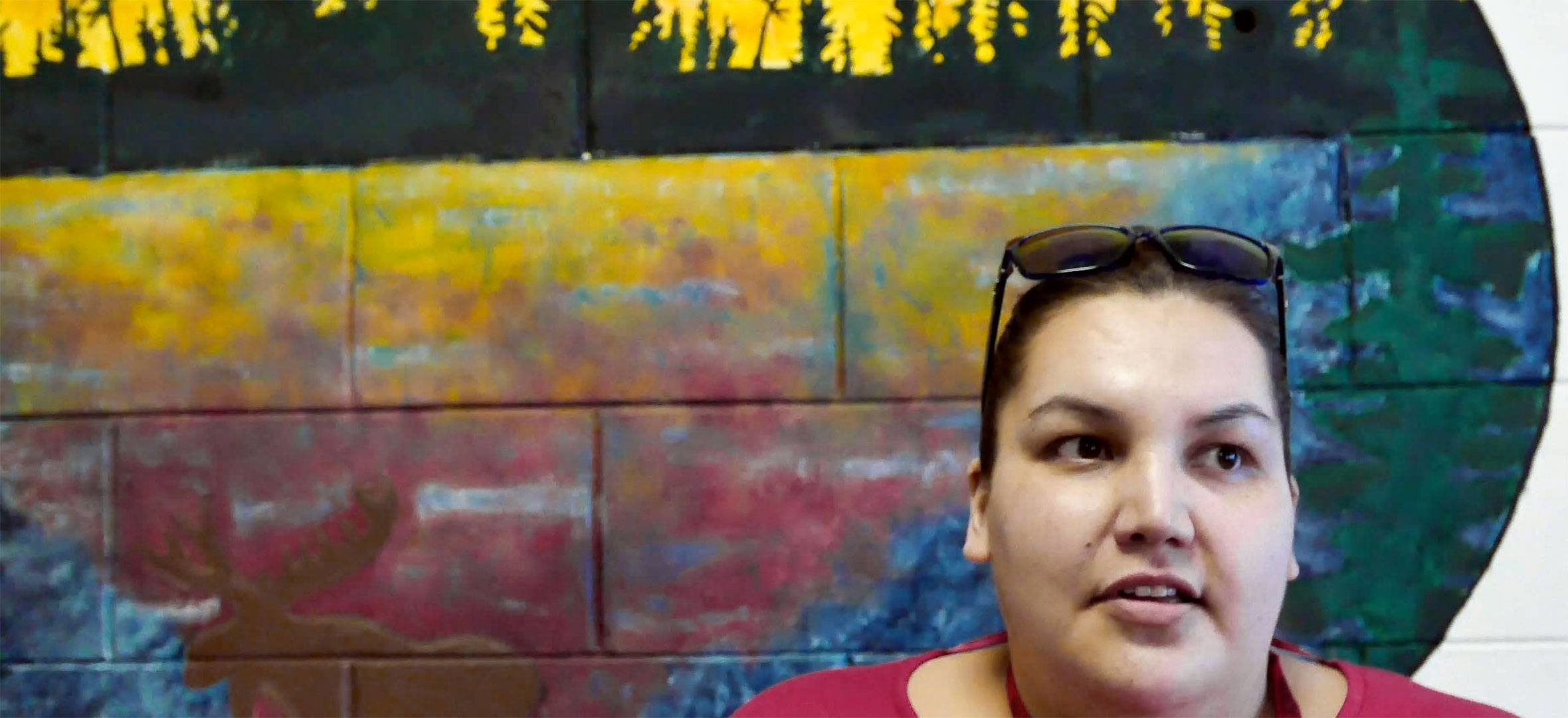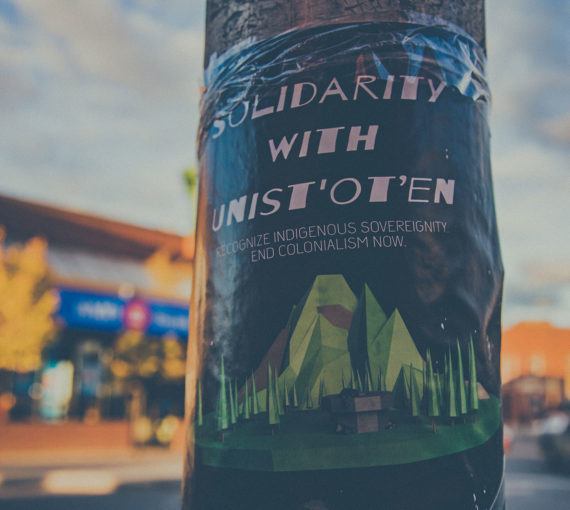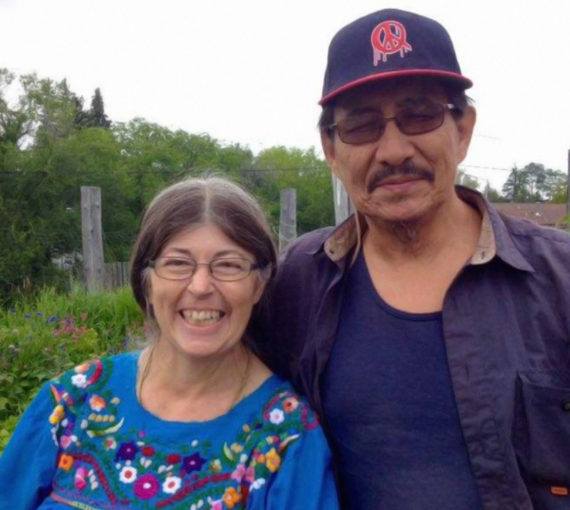
A young girl from the Fox Lake Cree Nation draws a picture of the boreal forest.
In December 2018, we headed to northern Manitoba to meet with the Fox Lake Cree Nation. Since the elders there can remember, First Nation members, now about 1,100, have lived off the boreal forest that surrounds them. Hunting, fishing and trapping are a way of life and a means of survival. (One man proudly shared with us the story of teaching his daughter to trap her first rabbit when she was just three years old.)
The remote terrain is not for the faint of heart. Locals tell us that Provincial Road 280 — the only way in and out of Fox Lake — is consistently voted worst road in Manitoba. You’ll spend four hours on the death trap if you fly into the small airport in Thompson, as many who come this way do.
Today, the people of Fox Lake Cree Nation are telling a different story. It’s no longer about pride at being able to survive off the land; rather it’s about tragedy and loss, about the destruction and depletion that came with the onset of industrial development. Manitoba Hydro workers first descended on the First Nation in the 1960s. Since then, three hydroelectric generating stations and two converter stations have been built on the territory, as well as a multi-billion-dollar dam that has been under construction since 2014 on the Nelson River. More than 96 per cent of the province’s electricity comes from the hydro dams along the Nelson.
According to the UN Declaration on the Rights of Indigenous Peoples, “States shall consult and cooperate in good faith with the indigenous peoples concerned through their own representative institutions in order to obtain their free, prior and informed consent before adopting and implementing legislative or administrative measures that may affect them.” Much of this development came without proper consultation, says the First Nation. It was only in the mid-1980s that the Fox Lake Cree were recognized as an interested party in the development that had been ongoing for years.
Hydro projects wreak havoc on First Nation
Many of the struggles that accompanied the Hydro projects have been recently documented in the media, from the sexual abuse by Hydro workers of Fox Lake Cree women to the suspected destruction of sacred land. There has been evidence of racism and fish depletion. When we were there, a boil-water advisory was in effect, pointing to signs of contaminated drinking water.
Joanne Lavallee is an Impact Assessment Coordinator with Fox Lake’s Implementation and Future Development Office. She monitors Hydro activities to ensure compliance with Manitoba’s Environment Act. The act requires Hydro to include environmental impact statements in all its applications for licences to construct projects in and around “The Bush” — the name Fox Lake residents lovingly call the land where they live.
This is how Cree people have lived for generations. My grandfather, my mother, myself, we all lived off the land and now it’s all changing. It’s all depleting.
Joanne Lavalee, Fox Lake Implementation and Future Development Office
“I moved away for four years, and I came back last year. During that time there was a lot of development with the Bipole project,” Lavallee says. “It cut right through the south access road of Gillam.”
The 1,384-kilometre Bipole III transmission line is being built from the Keeyask generating station to a converter station in Springfield, not far from Winnipeg.
“I used to go down there a lot with my grandparents, and when I came home it was all gone. Trees down, everything,” she says. “And then all I see are metal trees all the way down. That broke my heart. It crushed me because that’s where I grew up. That’s where I learned how to fish. My grandpa caught sturgeon and now there’s a depletion in the sturgeon in the water. The area where we used to play as kids is gone; it’s all eroded. So, it was very upsetting to see when I came home. It was a shock.”
Traditional way of life eroding
Her community’s traditional way of life is disappearing before her eyes.
“If people could spend time here they would realize it’s a beautiful country. There’s so much to offer. Great berry-picking spots. There’s so much harvesting to be done,” Lavallee says. “Right across the river you can just see the moose, the caribou. If they were to put in another dam up there, that would be gone. We’d have to move farther just to harvest. We’re already going to lakes outside the community and travelling even farther to get fresh fish, not ones with high concentrations of mercury.”
The ancestors of the Fox Lake Cree have lived in the region since the end of the last ice age.
“This is how Cree people have lived for generations. My grandfather, my mother, myself, we all lived off the land and now it’s all changing. It’s all depleting,” Lavallee says. “It’s sad because we can’t hunt and trap outside our back doors anymore.”
With their deep knowledge of and respect for the nature that sustains them, Indigenous communities are well-placed to speak up. It’s time for the rest of Canada to listen.
In 2004, Fox Lake Cree Nation, Manitoba Hydro and the province reached a settlement agreement for damages from the development projects. However, it’s clear that the impacts continue. On our second day there, we met more community members. They had come together to share stories, many painful. One grandfather who works for Manitoba Hydro broke into tears, the struggle between his conflicting responsibility to his employer and his nation evident.
Taking action on conservation
More than that, the Fox Lake Cree had come together to discuss a way forward, to identify opportunities to voice their rights, protect their land and ensure their traditional ways of life can continue.
Today, the Fox Lake Cree are involved in monitoring the progress of development activities and identifying any potential issues that may arise, and a Fox Lake Cree Nation community liaison officer mediates any conflicts. Meanwhile, the First Nation is also completing sociocultural assessments on the impacts of past and future developments and documenting local and historical knowledge that can help map areas of importance to guide future projects.
Throughout Canada, Indigenous communities like the Fox Lake Cree are leading efforts for ecological conservation, and we at the David Suzuki Foundation are striving to support them. With their deep knowledge of and respect for the nature that sustains them, Indigenous communities are well-placed to speak up. It’s time for the rest of Canada to listen.




